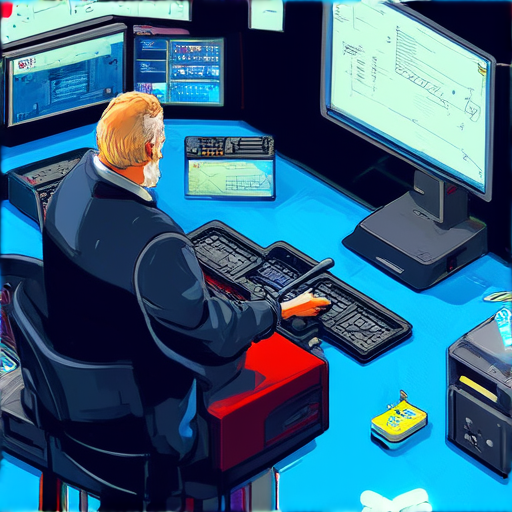For aspiring game developers and entrepreneurs, creating a game studio from scratch can seem like a daunting task, filled with uncertainty and risk. However, with careful planning, dedication, and a passion for innovation, it’s entirely possible to turn your dream into a reality. Whether you’re looking to join the ranks of successful game developers who have made millions through their creations or simply want to bring your unique vision to life, understanding the ins and outs of starting a game studio is crucial.

Starting Your Own Gaming Studio
To start your own gaming studio, you’ll need to have a solid understanding of the game development process, as well as a passion for creating engaging and immersive experiences.
-
Define Your Concept
-
Assemble a Team
-
Develop a Business Plan
-
Choose a Development Engine
-
Design and Develop Your Game
-
Test and Refine Your Game
-
Publish and Market Your Game
-
Continuously Improve and Expand
Determine the type of games you want to develop, whether it’s a mobile game, PC game, or console game. Consider factors such as genre, target audience, and gameplay mechanics.
You’ll need a team of skilled professionals, including programmers, artists, designers, and writers. Look for individuals who share your vision and are passionate about game development.
Create a comprehensive business plan that outlines your goals, budget, and timeline. This will help you stay organized and focused throughout the development process.
Select a suitable game engine, such as Unity or Unreal Engine, that meets your project’s needs. Consider factors such as ease of use, performance, and compatibility.
Create a detailed game design document that outlines the game’s mechanics, art style, and sound design. Then, begin developing your game, focusing on core features and gameplay.
Conduct thorough testing to identify bugs and areas for improvement. Gather feedback from players and make necessary adjustments to ensure a polished final product.
Decide on a distribution method, such as Steam or GOG, and create a marketing strategy to reach your target audience. Utilize social media, influencer partnerships, and advertising to promote your game.
Monitor player feedback and analytics to identify areas for improvement. Regularly update your game with new content, features, and bug fixes to keep players engaged and satisfied.
By following these steps and staying committed to your vision, you can successfully establish your own gaming studio and create engaging experiences for gamers worldwide.
For more information on game development, check out our resources on game development tutorials and game design principles.
Additionally, consider joining online communities, such as the Gamasutra forums, to connect with other game developers and stay updated on industry trends.
Remember to always follow best practices for game development, including regular backups, version control, and code optimization.
With dedication and hard work, you can turn your passion into a successful gaming studio.
Do I Need an LLC as a Game Developer?
No, you don’t necessarily need to set up an official company or an LLC as a game developer.
- You can operate under your own name, which means all income generated from your games belongs to you personally.
- This approach simplifies tax filing and accounting, as you won’t need to separate business and personal expenses.
Pros of Operating Under Your Own Name:
- Simplified financial management and reduced administrative tasks.
- No need to file separate business taxes or maintain a dedicated business bank account.
- Faster access to funds, as you can use your personal account for game development expenses.
Cons of Operating Under Your Own Name:
- Limited liability protection, meaning your personal assets may be at risk in case of business-related lawsuits or debts.
- Potential difficulties in separating personal and business finances, which can lead to accounting errors or audits.
When to Consider Forming an LLC:
- If you plan to hire employees or contractors, forming an LLC provides liability protection and helps establish a professional entity.
- In cases where you’re developing games with high revenue potential or complex intellectual property, an LLC offers better asset protection and tax benefits.
Key Takeaways:
As a game developer, operating under your own name is a viable option, especially for small-scale or solo projects. However, consider forming an LLC if you anticipate significant growth, employee involvement, or high-risk activities. Weigh the pros and cons carefully before making a decision that suits your business needs.

Is 30 Too Old to Start Game Development?
You’re never too old to start game development.
- The gaming industry has seen numerous examples of successful game developers who started their careers well into their thirties, forties, and even fifties.
- With the rise of indie game development, there are now more opportunities than ever for individuals to turn their passion into a career, regardless of age.
Benefits of Starting Game Development Later in Life
- Maturity and Life Experience: Older game developers often bring a level of maturity and life experience to their work, which can result in more nuanced and realistic game designs.
- Established Skills: Many people in their thirties have already developed valuable skills in areas such as programming, art, or writing, making it easier to transition into game development.
- Network and Connections: As people get older, they tend to have established professional networks and connections, which can be beneficial when seeking out job opportunities or collaborating with others in the industry.
Resources for Learning Game Development
- Unreal Engine: A popular game engine that offers a wealth of tutorials, documentation, and community support.
- Unity: Another widely-used game engine that provides extensive resources and learning materials.
- Game Development Tutorials: A website offering a wide range of tutorials and guides on various aspects of game development.
Conclusion
Starting game development at 30 or older may seem daunting, but it’s definitely possible. With the right mindset, resources, and support, anyone can succeed in this exciting and rewarding field.

Are Gaming Studios Profitable?
As a game developer, understanding the profitability of gaming studios is crucial for making informed decisions about your own business.
-
Profit Margins
-
Revenue Streams
- Sales of physical copies of games
- Digital sales through online stores like Steam and GOG
- Subscription-based models, such as Xbox Game Pass and PlayStation Now
- Advertising and sponsorships
- Licensing fees for game franchises and intellectual properties
-
Expenses
- Development costs, such as salaries, software, and equipment
- Marketing and advertising expenses
- Server and infrastructure costs for online games
- Intellectual property licensing fees
- Taxes and regulatory compliance
-
Competitors
-
Indie Game Development
Generally, a game developer can expect a profit margin of around 15% to 20%, although this number can vary greatly depending on factors such as the type of game, target audience, and market conditions.
Gaming studios can generate revenue through various channels, including:
Gaming studios incur various expenses, including:
The gaming industry is highly competitive, with many established players, including Electronic Arts, Activision Blizzard, and Ubisoft.
However, there are also opportunities for independent game developers to succeed, particularly in niche markets and genres.
Indie game development has become increasingly popular in recent years, with many successful titles emerging from small studios and individual developers.
Platforms like Steam and GOG have made it easier for indie developers to reach a wider audience and monetize their games.
In conclusion, gaming studios can be profitable, but it requires careful planning, execution, and management of finances, marketing, and development efforts.
By understanding the various revenue streams and expenses involved, game developers can make informed decisions to optimize their business and increase profitability.
Can Gaming Make You a Millionaire?
The short answer is yes, it is possible to become a millionaire through gaming.
- Esports: Professional gamers can earn millions of dollars competing in tournaments and leagues, such as the League of Legends Championship Series and the Dota Pro Circuit.
- Twitch Streaming: Popular streamers can earn significant amounts of money through subscriptions, donations, and ad revenue on platforms like Twitch.
- Game Development: Successful game developers can earn millions of dollars through sales of their games, as well as through investments and partnerships.
- Sponsorships and Endorsements: Skilled gamers can earn money through sponsorships and endorsements from gaming companies and brands.
Indie Game Developers Can Also Succeed
While becoming a millionaire through gaming may seem daunting, indie game developers have a unique opportunity to succeed in the industry.
- Create a Hit Game: Develop a game that resonates with players and becomes a hit, generating significant revenue through sales and downloads.
- Build a Community: Foster a loyal community around your game, generating revenue through in-game purchases, subscriptions, and merchandise sales.
- Publish on Multiple Platforms: Publish your game on multiple platforms, including PC, console, and mobile devices, to reach a wider audience and increase revenue potential.
- Network and Collaborate: Network with other game developers, publishers, and industry professionals to collaborate on projects, share knowledge, and stay up-to-date on industry trends.
Key Takeaways
To become a millionaire through gaming, focus on developing skills, building a community, and creating a successful game or streaming channel.
- Develop a Unique Skillset: Acquire skills in game development, esports, or streaming to stand out in the industry.
- Build a Loyal Community: Foster a loyal community around your game or streaming channel to generate revenue and support.
- Stay Up-to-Date on Industry Trends: Continuously learn and adapt to changes in the gaming industry to stay ahead of the competition.

The Richest Game Developer
Gabe Newell, the co-founder and managing director of Valve Corporation, has been estimated to have a net worth of $39 billion as of 2021.
- Newell owns at least a quarter of Valve, making him one of the wealthiest individuals in the gaming industry.
- According to various reports, Newell’s wealth is largely due to the success of Valve’s popular games, including Counter-Strike, Dota 2, and Half-Life.
- Newell’s net worth has been steadily increasing over the years, thanks to the continued growth of the gaming industry and the success of Valve’s games.
Other notable game developers who have made significant fortunes include:
- Epic Games’ Tim Sweeney, who has an estimated net worth of around $20 billion.
- Roberts Space Industries’ Chris Roberts, who has an estimated net worth of around $10 million.
While these figures may seem impressive, it’s worth noting that Gabe Newell remains the richest game developer in the world, with a net worth that far surpasses his peers.
Why is Gabe Newell So Rich?
Newell’s wealth can be attributed to several factors, including:
- The massive success of Valve’s games, which have generated billions of dollars in revenue.
- The company’s strategic investments in emerging technologies, such as virtual reality and cloud gaming.
- Newell’s shrewd leadership and vision, which have enabled Valve to stay ahead of the competition and adapt to changing market trends.
What Can We Learn from Gabe Newell’s Success?
Newell’s story serves as a reminder of the importance of innovation, risk-taking, and strategic planning in the gaming industry.
- Innovate and take risks: Newell’s willingness to experiment with new ideas and technologies has paid off handsomely for Valve.
- Focus on quality: Valve’s commitment to delivering high-quality games has earned the company a loyal fan base and critical acclaim.
- Stay adaptable: Newell’s ability to adjust to changing market trends and consumer preferences has helped Valve remain competitive and relevant.
Conclusion
Gabe Newell’s remarkable success story serves as a testament to the power of innovation, hard work, and strategic planning in the gaming industry.
As we continue to navigate the ever-changing landscape of gaming, we would do well to learn from Newell’s example and strive to innovate, adapt, and deliver high-quality experiences for gamers around the world.




0 Comments